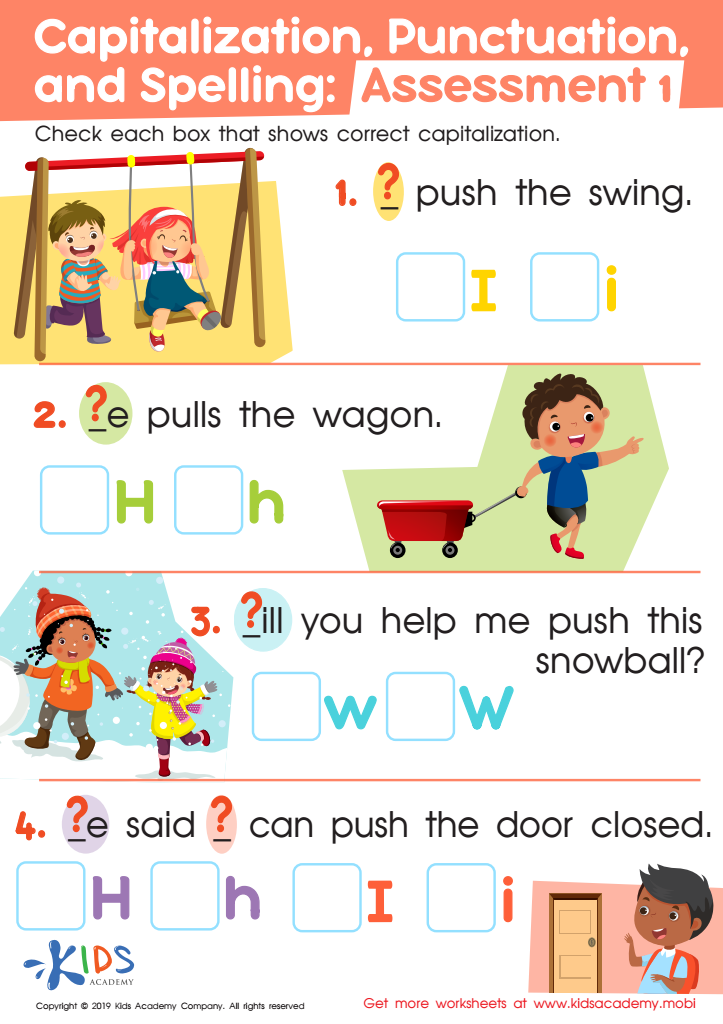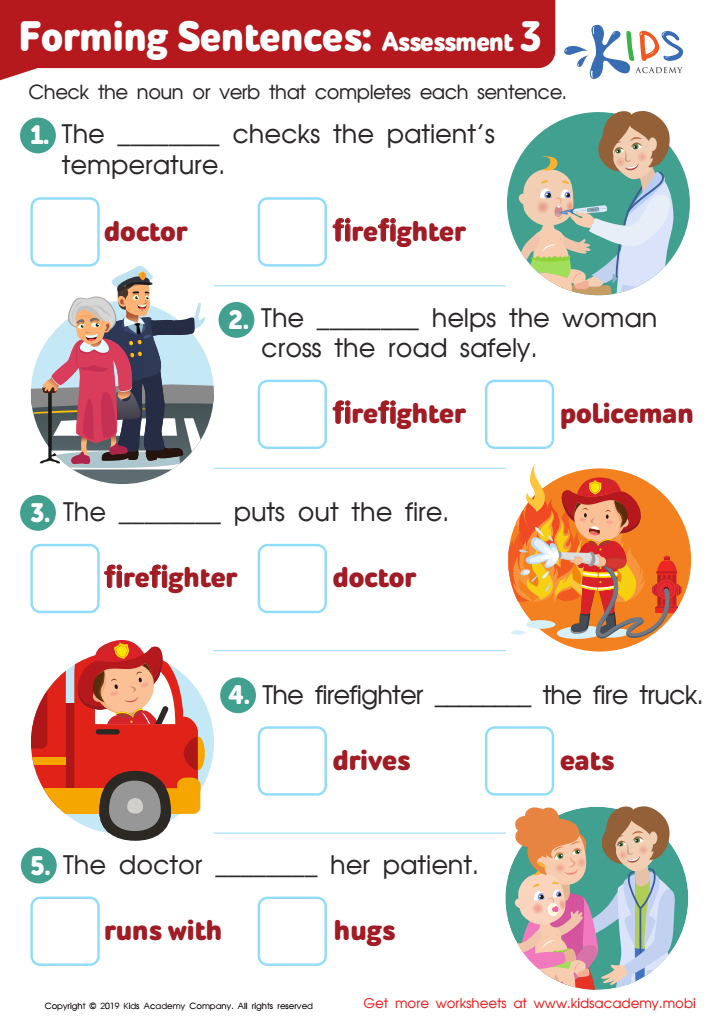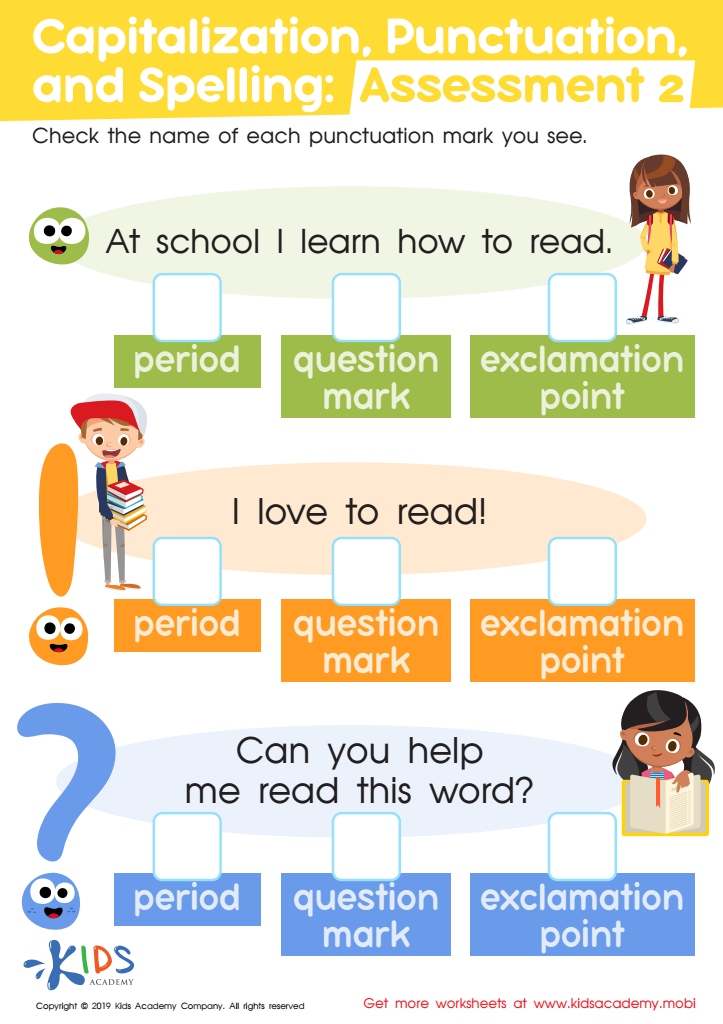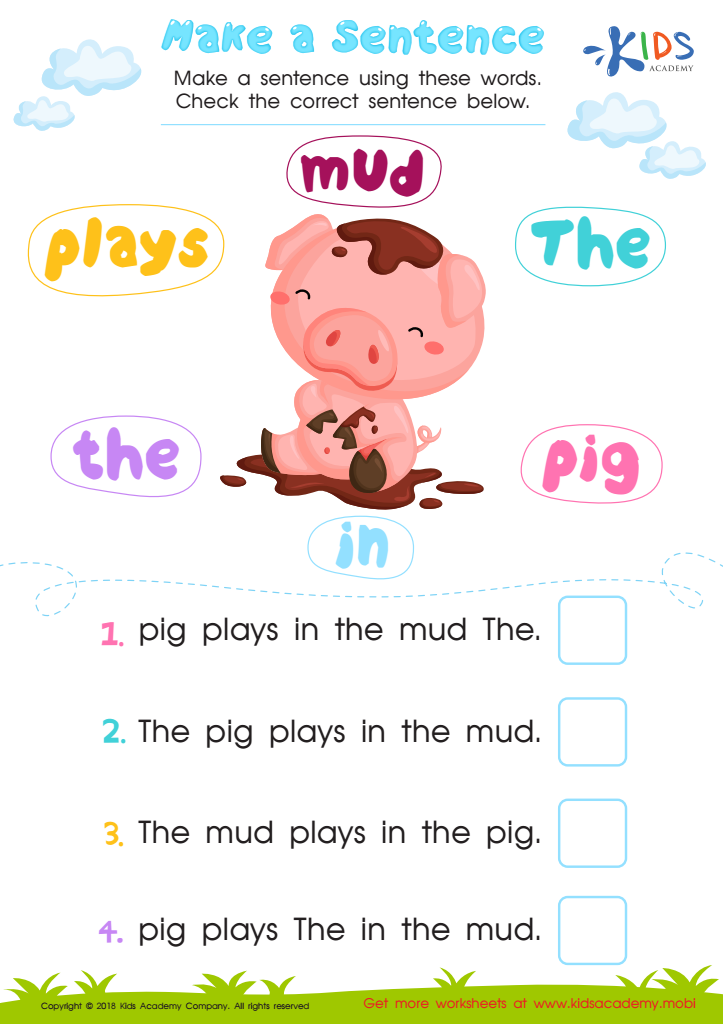Easy Writing worksheets activities for Ages 6-8
4 filtered results
-
From - To
Discover our engaging "Easy Writing Worksheets Activities for Ages 6-8" designed to inspire young writers! Tailored for early learners, these fun and interactive worksheets provide the perfect blend of creativity and skill development. Kids will enhance their writing abilities through various activities, such as sentence formation, story prompts, and themed writing exercises. Each worksheet encourages imagination while reinforcing essential language concepts. Perfect for classroom use or home practice, our resources make learning enjoyable and effective. Foster a love for writing in your child as they explore language in exciting ways! Check them out today and watch their creativity bloom!


Capitalization. Punctuation. Spelling: Assessment 1 Worksheet


Forming Sentences: Assessment 3 Worksheet


Capitalization. Punctuation. Spelling: Assessment 2 Worksheet


Assessment: Make a Sentence Worksheet
Parents and teachers should care about Easy Writing activities for ages 6-8 because these foundational exercises play a crucial role in developing children's literacy skills and enhancing their overall academic success. At this age, children are beginning to grasp the mechanics of writing, including spelling, grammar, and sentence structure. Easy Writing activities help them practice these skills in a fun and engaging way, fostering a love for learning.
Engaging in writing activities also supports cognitive development; children learn to express their thoughts, feelings, and ideas clearly, which bolsters their creative thinking. Additionally, writing enhances fine motor skills as children practice holding pencils and forming letters.
Moreover, encouraging children to write in these early years builds confidence in their abilities, making them more willing to take on challenges in the classroom. As they progress, these skills become foundational for more complex tasks, including storytelling and academic essays.
Finally, Easy Writing activities facilitate communication between home and school. Parents engaged in their child’s writing practice can better support learning objectives, creating a cohesive educational experience. Ultimately, fostering writing skills at this age lays the groundwork for lifelong learning and successful communication.
 Assign to My Students
Assign to My Students















